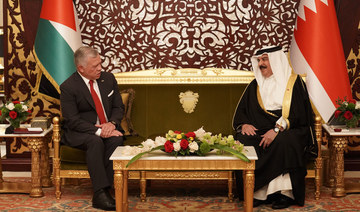DUBAI: Middle Eastern airlines are maintaining their upward trajectory in passenger and cargo volumes thanks to strong regional economies, according to the International Air Transport Association.
Ahead of its General Assembly in Dubai, the IATA highlighted that Saudi Arabia’s substantial investments in infrastructure and tourism contributed to robust growth, while the UAE remained a key destination for both leisure and business travelers.
On a global scale, the airline industry is set to achieve record revenues of $1 trillion in 2024. All regions worldwide are expected to generate profits for a second year in a row, with the most significant increase being for Asia-Pacific carriers.
In a press release issued to coincide with the gathering in the UAE, the IATA struck an upbeat note, and said: “Although airlines continue to add capacity, yields remain healthy and the demand for travel remains buoyant and looks set to continue apace. Geopolitical risks are the main threat, especially to the Levant carriers.”
“The Gulf carriers are relatively less impacted unless tensions between Iran and Israel escalate.”
Addressing the General Assembly, IATA’s Director General Willie Walsh noted that the sector’s projected net profit in 2024 is a significant achievement, especially considering the severe losses experienced during the pandemic.
“With a record 5 billion air travelers expected in 2024, the human need to fly has never been stronger,” Walsh stated.
The association revealed a revised, upbeat profitability forecast for the global airline industry in 2024, signaling an improvement over previous projections made in June and December 2023.
Net profits for airlines are expected to reach $30.5 billion in 2024, reflecting a net profit margin of 3.1 percent. This is a notable increase from the estimated $27.4 billion in net profits for 2023, which had a margin of 3 percent. It also surpassed the December 2023 forecast, which anticipated $25.7 billion in profits with a 2.7 percent margin.
However, the return on invested capital for 2024 is projected to be 5.7 percent, which remains approximately 3.4 percentage points below the average cost of capital.
Operating profits are expected to climb to $59.9 billion in 2024, up from an estimated $52.2 billion in 2023. The total revenues for the industry are projected to hit a record high of $996 billion in 2024, representing a 9.7 percent increase.
The number of air travelers is anticipated to set a new record at 4.96 billion, while total air cargo volumes are expected to reach 62 million tonnes.
Walsh highlighted that airlines are projected to connect nearly 5 billion people on 22,000 routes through 39 million flights this year, facilitating $8.3 trillion in trade.
He stressed that strengthening airline profitability and financial resilience is crucial for continued investment in customer needs and sustainability initiatives, especially the goal of achieving net-zero carbon emissions by 2050.
Despite the positive outlook, the top official pointed out that the airline industry still has significant ground to cover.
He noted that the modest profit of $6.14 per passenger barely covers the cost of a cup of coffee in many parts of the world.
Improving profitability will require addressing supply chain issues to deploy fleets more efficiently and reducing the burden of onerous regulations and rising taxes.
Walsh called for public policy measures that enhance business competitiveness. These measures would benefit the economy, jobs, and connectivity and support accelerated investments in sustainability.
In 2024, passenger revenues are projected at $744 billion, which is up 15.2 percent from 2023. Passenger demand is expected to grow annually at 3.8 percent from 2023 to 2043.
Passenger yields are forecasted to strengthen by 3.2 percent, with an average return airfare of $252 in 2024. The average passenger load factor is expected to reach 82.5 percent, close to pre-pandemic levels.
Polling data from April 2024 shows strong performance expectations for passenger markets, with 39 percent of respondents planning to travel more in the next 12 months.
Cargo revenues are expected to decline to $120 billion in 2024 but still above 2019 levels, with yields in this area decreasing by 17.5 percent.
For 2024, the IATA expected $1 trillion in revenues. However, total industry expenses are forecasted to grow to $936 billion, with fuel costs accounting for 31 percent of operating costs. Non-fuel expenses, including labor costs, are well-controlled.
The total number of flights is expected to be 38.7 million in 2024, with 1,583 aircraft deliveries, mitigating supply chain issues.
Industry profitability remains fragile and could be influenced by various factors, including global economic developments, geopolitical tensions, supply chain disruptions, regulatory risks, and public policy changes.
Economic developments in China, particularly slowing growth and high youth unemployment, could have significant impacts, according to the IATA press release, which added that the operational impact of the Russia-Ukraine war and the Israel-Hamas conflict has been limited, but any escalation could negatively affect the economic outlook.
Supply chain issues continue to affect airlines, causing unforeseen maintenance problems and delivery delays for aircraft and parts, the release continued.
Walsh emphasized that addressing supply chain issues and reducing regulatory burdens are critical to enhancing profitability.






















